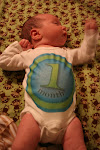As we prepare ourselves for yet another surgery due to my sometimes dumb body and habit of loosing babies.
i'vee been keeping busy with dr. google to anwser some questions and raise even more for me to present to my RE.
I hope that my "research" can maybe help others who actually have a life and don't scour the interwebz, while the lil one is snoozing, instead of oh i don't know cleaning, laundry and the shopping list of stuff i need to do while he is asleep.
As some of yo may know i'm going in for a hysteroscopy tomorrow to "poke" around and remove any scar tissue from previous D&C and/or other causes.
so on with today's lessons:
i'vee been keeping busy with dr. google to anwser some questions and raise even more for me to present to my RE.
I hope that my "research" can maybe help others who actually have a life and don't scour the interwebz, while the lil one is snoozing, instead of oh i don't know cleaning, laundry and the shopping list of stuff i need to do while he is asleep.
As some of yo may know i'm going in for a hysteroscopy tomorrow to "poke" around and remove any scar tissue from previous D&C and/or other causes.
so on with today's lessons:
What is Hysteroscopy?
minor surgical procedure utilizing a thin fiberoptic tube or hysteroscope to see the inside of the uterus (endometrial cavity). Hysteroscopy allows the doctor to diagnose and treat a variety of uterine abnormalities which may cause infertility, recurrent miscarriages, abnormal bleeding and pain.
which bring me to why i'm having so many losses...the honest anwser? we really don't know yet and i'm hoping this procedure tomorrow can clear some stuff up. if there is significant scar tissue to be removed then mre than likely that is why. see if the baby implant on scar tissue...its dead tissue with no real blood flow to it so baby won't get a proper blood supply. the other possibility was a heart shaped uterus or bicornuate uterus.
although he is pretty sure the later is not the case since the u/s all show a round/oval shaped uterus.Recurrent Miscarriage | |
| probably no aspect of infertility is more traumatic than becoming pregnant and then losing the baby to miscarriage. And while most women who miscarry do go on to give birth to a healthy baby in the next pregnancy, infertility specialists are often called in to find out the cause for the recurrent pregnancy loss and recommend treatment. The incidence of pregnancy loss among all women is about 20%. Statistics show that if the first pregnancy ended in miscarriage, the second has similar possibility - 20% - of the same outcome. After two miscarriages, however, the risk rises to 25%-30%. So, only about 4% of women will experience two consecutive pregnancy losses and less than 1% will experience 3 or more consecutive miscarriages. For this reason, most experts recommend that a woman see a fertility specialist if she has experienced two miscarriages in a row. For a woman who has had three consecutive miscarriages but no history of live birth, the next pregnancy has a 30-45% chance of ending in miscarriage. Keep in mind, however, that this means she still has better than 60% odds of carrying the next pregnancy to term! It had long been believed that - unlike "first" miscarriages, of which a little over half are caused by chromosomal abnormalities - recurrent pregnancy loss had other causes. However, recent research has demonstrated that about 60% of recurrent miscarriages are also caused by chromosomal abnormalities. Researchers are still debating what causes the remainder. Possibilities include immune system malfunction, hormone imbalances, distortions of the uterine cavity, and pelvic infections. Studies have also linked the use of alcohol, cigarettes, and excessive caffeine consumption to an increased risk of miscarriage. The risk of miscarriage increases with age, and, in many cases, can be attributed to an abnormal egg. As a woman gets older, the quality of her eggs diminishes resulting, not only in more miscarriages, but also in an increased infertility and genetic abnormalities (such as Down’s syndrome) rates. When a woman seeks medical care for recurrent miscarriages, her doctor will first seek to diagnose the cause for her problem. What causes recurrent miscarriage? A cause for the miscarriage can be identified in only 50 % of the cases. | |
| |
| |
| |
| |
RPL TESTING An evaluation for known causes of recurrent pregnancy loss is most often initiated after 2 or 3 consecutive pregnancy losses and may include the following:
What can I do to prevent another miscarriage?
|














0 comments:
Post a Comment